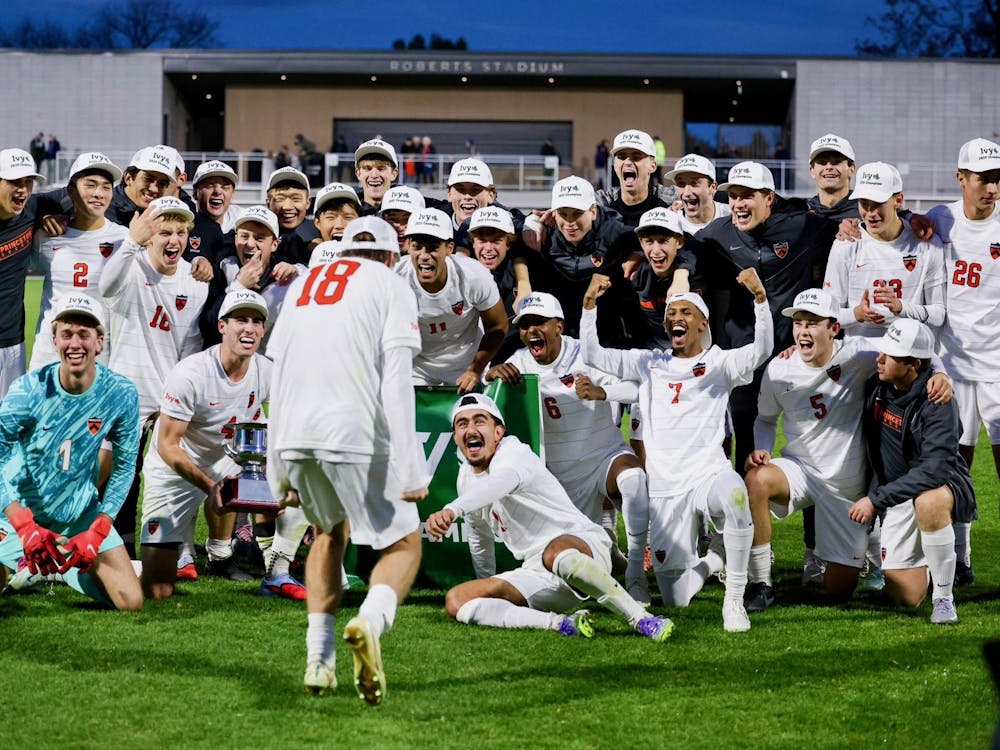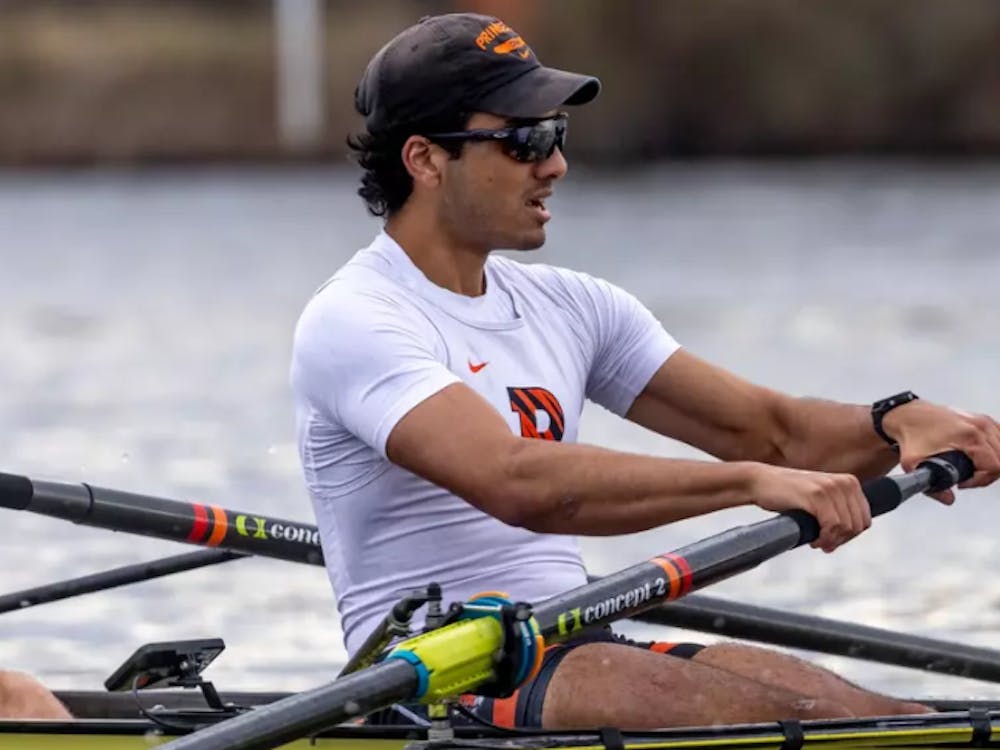The list of guest speakers included two Olympic gold medalists, eight Princeton alumni, 12 people named to SportBusiness Journal’s Forty under 40 list and 24 CEOs, chairmen, directors, partners and principals.
Frank Vuono ’78 — a former Princeton football player, the retired president of the Princeton Football Association and co-founder of 16W Marketing — provided the voice of experience for his panel, “Sports Marketing & Sponsorships II.” Vuono showed off his keen sense of humor when asked about the best advice he’s received in the business.
“Great early advice was [telling me to] get rid of the white leisure suit and the patent-leather shoes,” Vuono said.
On a more serious note, Vuono added something he had been told by one of his first employers.
“ ‘Never walk into my office unprepared,’ ” Vuono said. “Have you done any prep work, or were you out partying the night before? … It’s incredible how few people have actually done the minimal [amount of background research].”
Vuono emphasized that there is no substitute for hard work, saying that half-hearted efforts are not part of the formula for success.
“For all that you put in to getting into a good college, as much as that is over the top and is way too much pressure, put that into what you’re going to do,” Vuono said.
His experience in the sports world may have been more extensive than that of the others on his panel, but almost every speaker at the symposium had a diverse and impressive background. They had all adapted to the times, changing jobs when necessary and utilizing their steadfast persistence to stay ahead in the game. Vuono himself went from jobs like working for KFC to working for the marketing division of the NFL.
“A ‘no’ is not a ‘no’ until about the fifth or sixth time,” said Ben Sturner, co-founder and CEO of Leverage Agency, to the amusement of many audience members following several semi-serious proposals asking the audience to try Leverage for their sponsorship needs. Sturner’s path to his current position included an internship for ESPN in high school to a job managing Lycos’ sponsorship of the 2000 Sydney Olympics.
Katherine Carter, executive vice president of Soccer United Marketing, a division of Major League Soccer, spoke about her experience as a woman in a typically male-dominated business.
“I’ll be pretty easy to recognize: I’m the chick on the panel,” Carter said.
Carter said she found that her outgoing personality and steely determination took her a long way in the industry. She speculated that being a woman made people pay more attention to her out of sheer curiosity and that they learned to respect her upon discovering the value of what she had to say.

In the panel “Sports Marketing & Sponsorship I,” Bill Susetka, chief marketing officer of the Ladies Professional Golf Association (LPGA), commented on how LPGA players were integrated into the marketing process since their property does not command the same return on investment as more popular leagues’. To compete, the LPGA came up with innovative hooks like the Rolex Rankings and the five points of celebrity to promote the sport.
“We have something called five points of celebrity,” Susetka said. “It’s not just being a professional golfer that makes a difference, it’s four other elements. Make sure you show passion out there because fans want to live vicariously through you. Be approachable, that means sign every autograph. Care about what you look like … You should look neat, you should look professional. [Finally,] be relevant to the community.”
The highlight of the event was a keynote conversation between Mark Shapiro ’89, vice president and general manager of the Cleveland Indians, and his father Ronald Shapiro, co-founder and chairman of the Shapiro Negotiations Institute.
Interspersed with bits of humor to lighten the mood, a few prevailing messages emerged during the discussion: These individuals are all passionate about their careers, their jobs are incredibly demanding, and they were all willing to adapt and change to succeed.
Beyond truly loving sports, almost all of the speakers commented on how building a strong business background before entering the sports world and an ability to think creatively are two of the most essential aspects to success in the industry.







